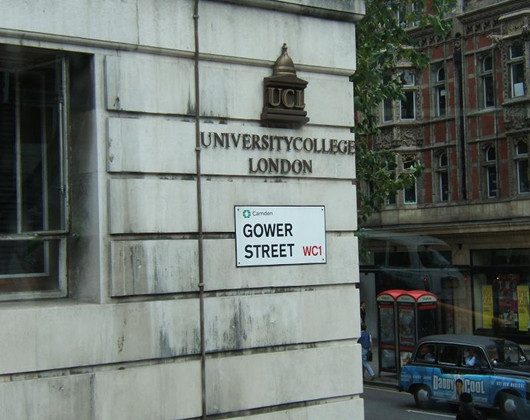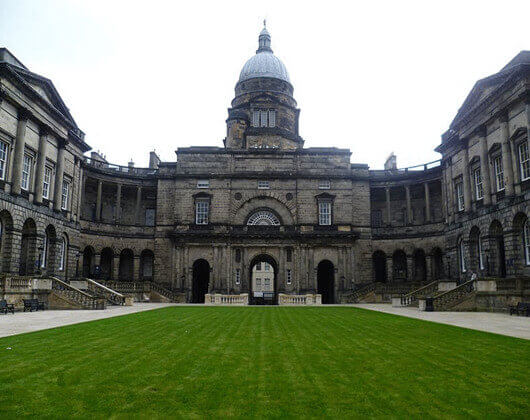You take all of the modules below. HVDC Technology and Control Introduces advanced concepts of power systems, power electronics and control theory necessary to fully understand the key aspects of the HVDC technology. Important topics such as converter technology and control, operation of DC networks and AC-DC interactions will be covered. Lecturers: Dr Balarko Chaudhuri and Dr Adria Junyent-Ferre. Laboratory This is a coursework only module. Power System Dynamics, Stability and Control Electric power network is by far the largest machine built on the Earth. The requirement for round the clock electricity supply can only be met through involved operation, control and coordination strategy and protective actions. This module will present a mathematical model of important components in the system and the concept of controlling and protecting them under varying operating circumstances. Lecturer: Prof Bikash Pal. Role and Value of Smart Grid Technologies Introduces advanced technical concepts and guiding principles behind electric power supply systems. Lecturers: Prof Goran Strbac and Dr Fei Teng. Selected Topics in Power Systems This new module will cover five important topics which are crucial for planning, operation and control of future power networks. Lecturer: Dr Balarko Chaudhuri You choose four modules from below. Adaptive Signal Processing and Machine Intelligence Aims to provide in-depth knowledge of the theoretical basis and applicability of modern methods for spectral estimation, algorithms which underlie adaptive signal processing, and machine intelligence techniques such as dimensionality reduction and neural and deep networks. Lecturer: Prof Danilo Mandic. Design of Linear Multivariable Control Systems Aimed at providing the principles for designing linear multivariable control systems to meet a range of practical applications. Lecturer: Dr Imad Jaimoukha. Digital Signal Processing and Digital Filters Aims to give a thorough grounding in the design of digital filters and in multirate signal processing techniques. Lecturer: Mr Mike Brookes. Estimation and Fault Detection Highlights the importance of estimating the state of a dynamic system from measurements (deterministic or noisy), and also to detect the occurrence of faults and abrupt system changes, and to equip them with some of the principal techniques available for this purpose. Lecturer: Prof Thomas Parisini. Optimisation Introduces finite-dimensional optimisation theory and the basic algorithms for finding minima. Lecturer: Prof Alessandro Astolfi. Power System Economics Gives an understanding of the economic principles underlying the operation and planning of the electricity systems including concepts of electricity markets and competition in electricity generation and supply, and the opening of the transmission and distribution systems to third party access. Lecturer: Prof Goran Strbac. Probability and Stochastic Processes Provides analytical tools for studying random phenomena in engineering systems. Lecturer: Dr Cong Ling. Stability and Control of Non-linear Systems Introduces the concepts and theoretical techniques needed to study the stability and stabilization of nonlinear control systems, with particular attention being paid to Lyapunov-based analysis and design of control feedback laws. Lecturer: Dr David Angeli. Sustainable Electrical Systems Reviews the motivating factors and aspirations for changing electricity systems to a more sustainable form. From this base, the challenges posed for planning and operating a system with a changed generation mix are described and analysed. To support this, the features of the key renewable and low carbon energy technologies are introduced. Lecturers: Dr Balarko Chaudhuri and Prof Goran Strbac. Systems Identification Introduces methods for constructing stochastic models of dynamic systems from measurements of input and output signals, and basic techniques for prediction of unknown quantities basing on available sensor data. Lecturer: Prof Thomas Parisini. Topics in Control Systems You will be introduced to advanced modern control methodologies and experience using them. You will gain an understanding of five approaches and have the chance to use three of them. Lectures will cover topics such as Kalman filtering and tracking, model predictive control, generalised sampled-data control, adaptive control, fault detection and isolation, integer programming, time-delay systems, time-varying systems and robots. Prof Alessandro Astolfi; Dr David Angeli; Dr Imad Jaimoukha. Traffic Theory and Queueing Systems Provides the opportunity to develop a conceptual framework for modelling and analysing different communication networks (e.g. circuit-switched and packet-switched networks). The module will show, firstly, how to set up such models and, secondly, how to use them in the performance (e.g. QoS) analysis of communication systems. Lecturer: Dr Javier Barria. Wavelets and Applications Finding useful information in huge amount of data is as difficult as finding a needle in a haystack. The key insight of wavelet theory is that by finding alternative representations of signals, it is possible to extract their essential information in a fast and effective way. Lecturer: Prof Pier-Luigi Dragotti.
 日本
日本
 韩国
韩国
 英国
英国










